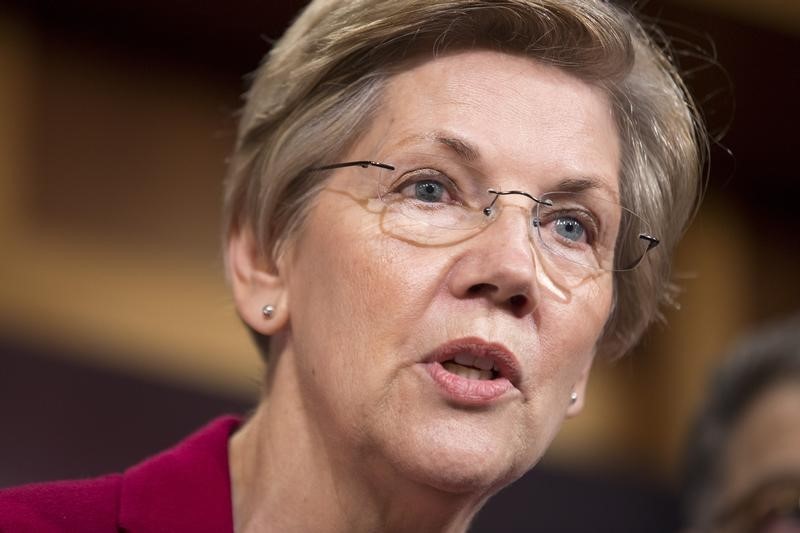(Bloomberg) -- Consumers in 2019 were more likely to say plans to raise taxes on the wealthy would harm economic growth than they were in prior years, despite it being a key campaign pledge for almost every Democratic presidential candidate, according to a new University of Michigan survey.
About 43% of consumers surveyed in the final months of 2019 said that taxes on the rich would likely help the economy, down from 49% a year prior, according to the data released Friday. The number of respondents who said levies on the wealthy would harm economic growth jumped to 31% in 2019 from 22% in 2018.
The slipping support for taxes on the wealthy could signal trouble for Democrats who have nearly universally called for increased income taxes, estate levies and capital-gains rates on top earners as a way to pay for social programs and reduce income inequality. The appetite for taxes that could slow growth is likely to shift based on consumer sentiment of the economic forecast.
Senators Elizabeth Warren and Bernie Sanders have gone a step further and have called for a new tax on wealth, which would chip away at the fortunes of some of the richest Americans, not just their incomes.
“The 2019 decline likely reflects consumers’ judgments about the more detailed proposals to raise taxes to reduce inequality advanced by Democrats in the primary election debates,“ Richard Curtin, director of the University of Michigan consumer survey, said. “Nonetheless, reducing inequality is still more likely to be favored by consumers.”
Not surprisingly, about 75% of Democrats said the higher taxes would be a boon to economic expansion, while 45% of Republicans said it would be harmful, according to the results. By income, about 2% of the top-third earners said it would grow the economy in the most recent survey, compared to 18% a year earlier.
Workers could lose $1.2 trillion in wages over a decade if Warren’s version of the wealth tax were to be enacted, according to a paper released Friday. The amount of lost earnings would increase to $1.6 trillion under Sander’s version of the levy, said the American Action Forum’s Doug Holtz-Eakin and Gordon Gray, who authored the paper.
The levy -- while directly hitting only thousands of very wealthy taxpayers -- would tax a large amount of economic activity, which would lead to decreased investment and reduced productivity. That burden would ultimately shift to workers in the form of smaller paychecks, according to the paper.
“No man is an economic island,” Holtz-Eakin said in an interview. “You can’t take something from one person and pretend there aren’t consequences elsewhere.”
(Michael Bloomberg is also seeking the Democratic Party nomination. He is the founder and majority owner of Bloomberg LP, the parent company of Bloomberg News.)
(Updates with how wealth tax would affect wages from seventh paragraph)
